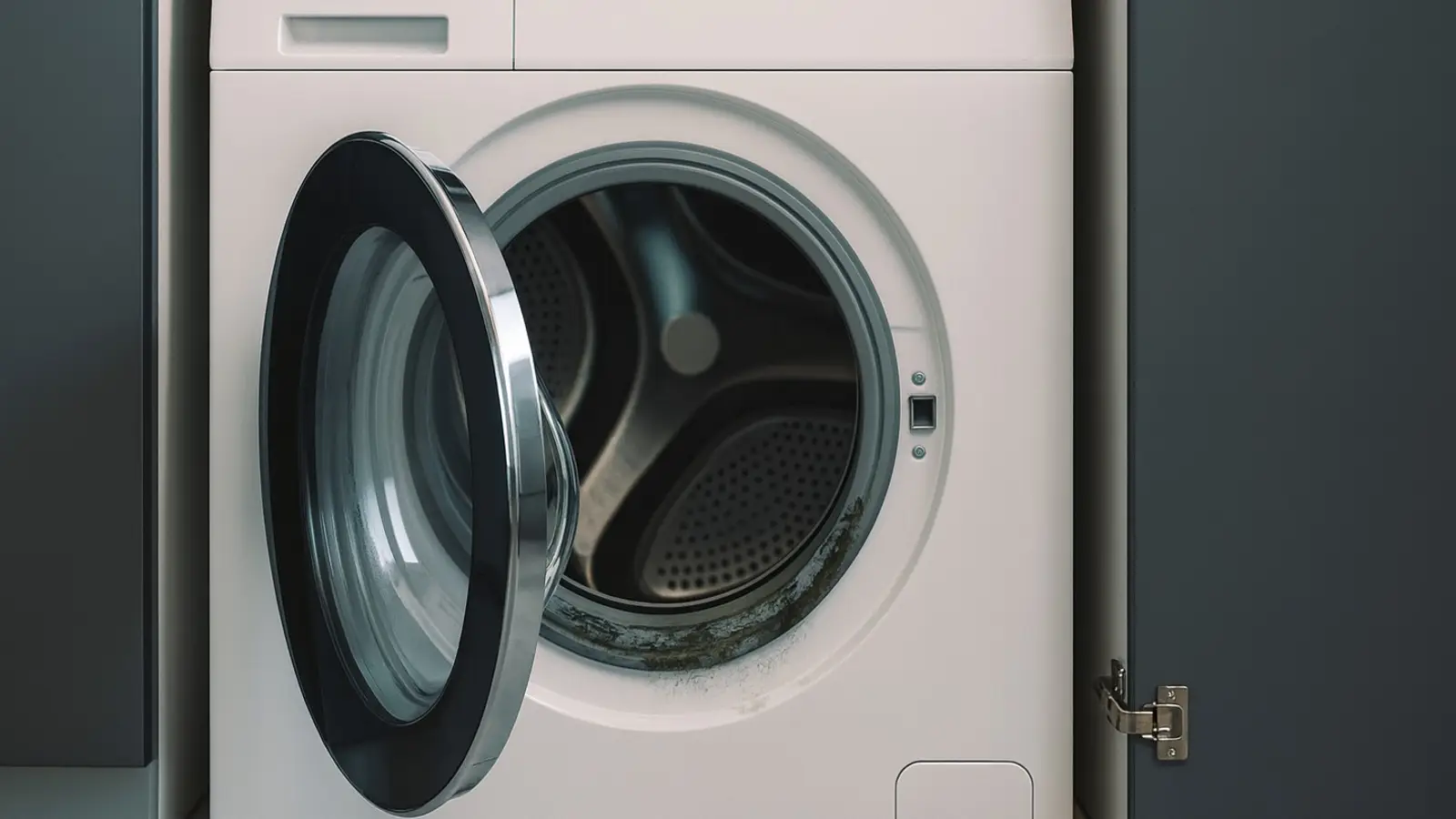https://boda.su/en/posts/id405-how-to-prevent-mold-in-washing-machines-and-protect-your-health
How to Prevent Mold in Washing Machines and Protect Your Health
Mold in Washing Machines: Causes, Risks, and Prevention Tips
How to Prevent Mold in Washing Machines and Protect Your Health
Discover why mold forms in washing machines, how it harms health and appliances, and learn simple prevention tips to keep your laundry fresh and safe.
2025-09-18T16:05:38+03:00
2025-09-18T16:05:38+03:00
2025-09-18T16:43:27+03:00
When a washing machine begins to smell unpleasant, it’s often the earliest indication that mold has taken hold. This isn’t just a nuisance for your laundry routine. Mold can damage the appliance and, more importantly, pose risks to your health.
Why Mold in a Washing Machine Is a Problem
The presence of mold is especially concerning for people with weakened immune systems, chronic respiratory issues, or allergies. Beyond health hazards, mold accelerates the wear of internal parts, reduces washing quality, and can eventually cause breakdowns.
What Causes Mold Growth?
High humidity in the bathroom
Washing machines are commonly installed in bathrooms, where humidity levels are naturally high. This creates an environment where mold thrives. If relocating the machine isn’t an option, proper ventilation and air circulation become crucial.
Closing the door too soon
A tightly shut door after a wash traps warmth and moisture inside the drum — ideal conditions for mold growth. Specialists recommend leaving the door slightly open to allow the machine to air out.
Dirty detergent drawer
Residues of powder and gel, combined with water, remain in the detergent compartment after each wash. This mixture becomes a breeding ground for mold. Regular cleaning and drying of the drawer can prevent contamination.
Frequent cold washes
Washing only at low temperatures won’t kill mold spores. Occasional hot cycles or the use of specialized cleaning agents are necessary to keep the interior free of fungus.
Clogged filters and drain system
Leftover water in filters and drains creates pockets of moisture where mold can spread unnoticed. Routine maintenance and cleaning of these parts reduce the risk.
Dirt on rubber seals and hoses
Moisture and detergent build up on rubber gaskets and hoses. Without care, they quickly become mold hotspots. Wiping and treating these areas regularly helps eliminate odors and keeps the machine in better condition.
Prevention Makes the Difference
Consistent cleaning, proper ventilation, and controlling humidity are simple steps that safeguard both your appliance and your health. These small habits extend the life of your washing machine while keeping mold — and its unpleasant smell — at bay.
Mold In Washing Machine, Washing Machine Smell, Prevent Mold, Washing Machine Cleaning, Laundry Hygiene, Washing Machine Maintenance, Mold Removal, Washing Machine Care
2025
articles
Mold in Washing Machines: Causes, Risks, and Prevention Tips
Discover why mold forms in washing machines, how it harms health and appliances, and learn simple prevention tips to keep your laundry fresh and safe.
Generated by Dall-e
When a washing machine begins to smell unpleasant, it’s often the earliest indication that mold has taken hold. This isn’t just a nuisance for your laundry routine. Mold can damage the appliance and, more importantly, pose risks to your health.
Why Mold in a Washing Machine Is a Problem
The presence of mold is especially concerning for people with weakened immune systems, chronic respiratory issues, or allergies. Beyond health hazards, mold accelerates the wear of internal parts, reduces washing quality, and can eventually cause breakdowns.
What Causes Mold Growth?
High humidity in the bathroom
Washing machines are commonly installed in bathrooms, where humidity levels are naturally high. This creates an environment where mold thrives. If relocating the machine isn’t an option, proper ventilation and air circulation become crucial.
Closing the door too soon
A tightly shut door after a wash traps warmth and moisture inside the drum — ideal conditions for mold growth. Specialists recommend leaving the door slightly open to allow the machine to air out.
Dirty detergent drawer
Residues of powder and gel, combined with water, remain in the detergent compartment after each wash. This mixture becomes a breeding ground for mold. Regular cleaning and drying of the drawer can prevent contamination.
Frequent cold washes
Washing only at low temperatures won’t kill mold spores. Occasional hot cycles or the use of specialized cleaning agents are necessary to keep the interior free of fungus.
Clogged filters and drain system
Leftover water in filters and drains creates pockets of moisture where mold can spread unnoticed. Routine maintenance and cleaning of these parts reduce the risk.
Dirt on rubber seals and hoses
Moisture and detergent build up on rubber gaskets and hoses. Without care, they quickly become mold hotspots. Wiping and treating these areas regularly helps eliminate odors and keeps the machine in better condition.
Prevention Makes the Difference
Consistent cleaning, proper ventilation, and controlling humidity are simple steps that safeguard both your appliance and your health. These small habits extend the life of your washing machine while keeping mold — and its unpleasant smell — at bay.

